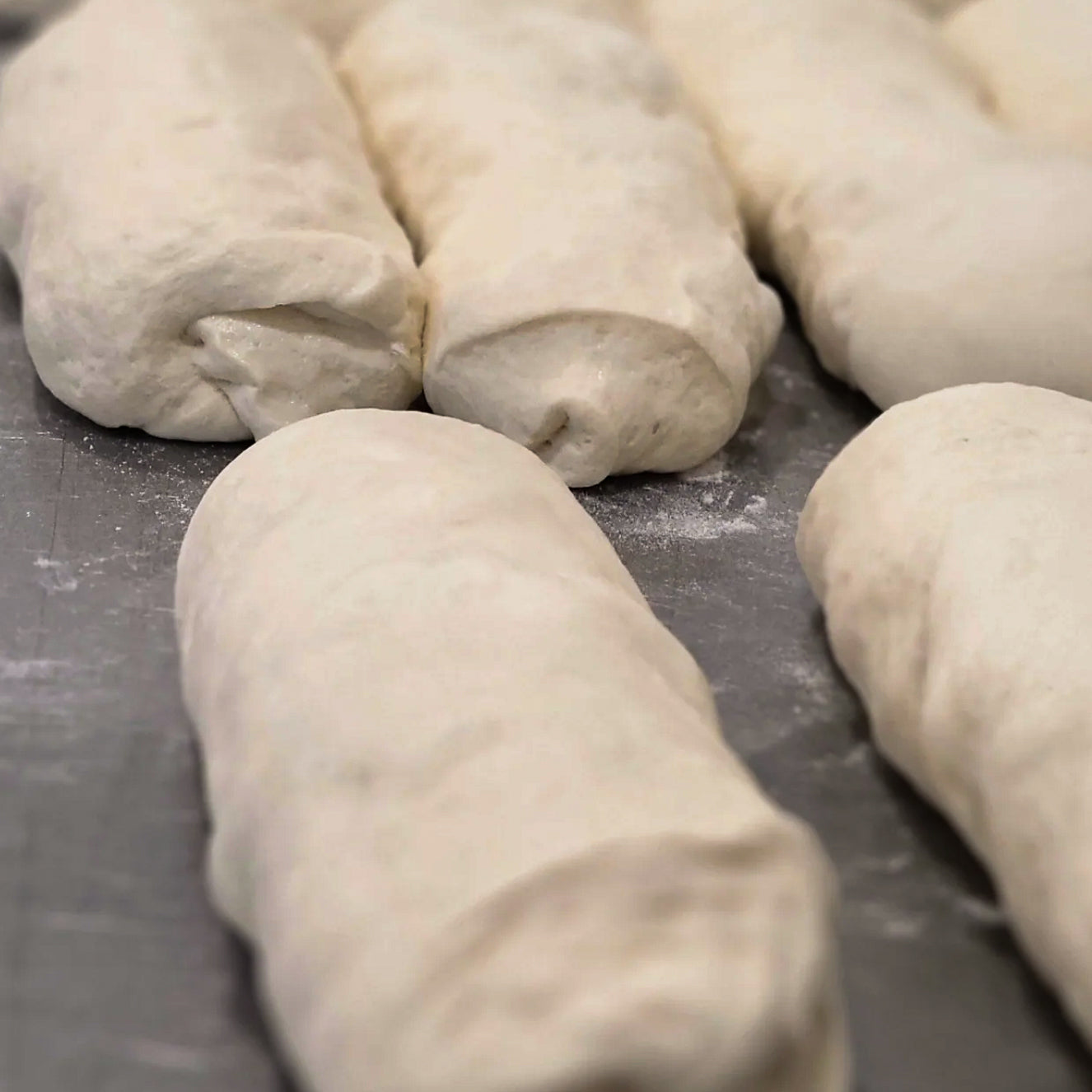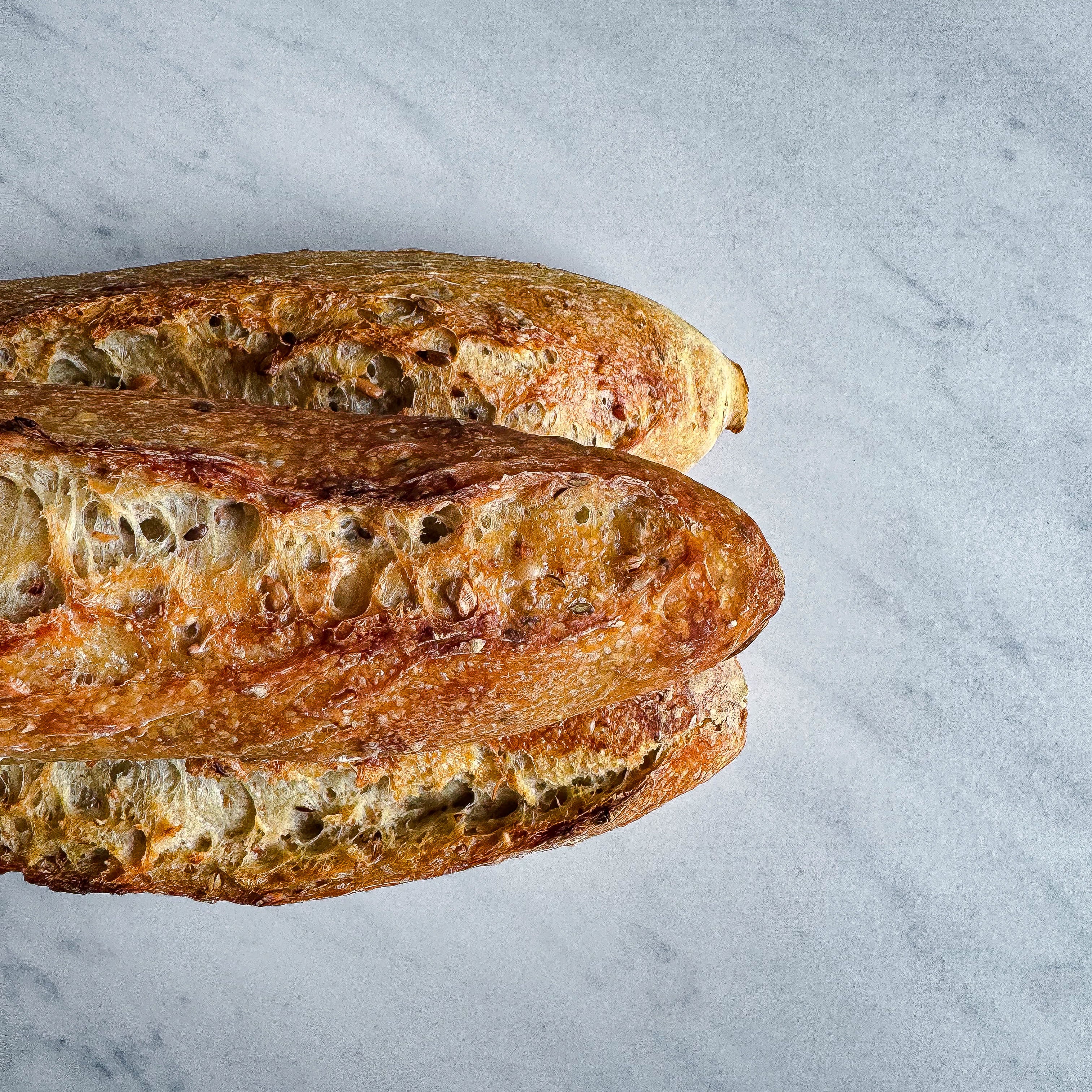Gluten, a buzzword that has captured the attention of many, is a complex protein found in grains like wheat, barley, and rye. It plays a crucial role in the structure and texture of bread. But what exactly is gluten, and how does it affect our health? In this friendly and informative article, we'll dive into the world of gluten, exploring its importance, its impact on our well-being, and the intriguing relationship between gluten intolerance and celiac disease. We'll also uncover the potential benefits of sourdough for individuals with gluten intolerance. Remember, while we strive to share valuable insights, it's essential to consult a health professional for personalized advice. Let's embark on this journey of discovery!
Decoding Gluten: The Protein Powerhouse
Let's demystify gluten. It's a protein complex that gives bread its elasticity and structure. Found in wheat, barley, and rye, gluten is made up of two main proteins: glutenin and gliadin. When mixed with water, these proteins form a network that traps carbon dioxide during fermentation, allowing the dough to rise and resulting in the fluffy texture we love.
Understanding Gluten's Impact on Health
Gluten's impact on health varies from person to person. For most individuals, consuming gluten poses no harm. However, some people experience adverse reactions due to gluten intolerance or celiac disease. Gluten intolerance is a general term used to describe non-celiac gluten sensitivity, where individuals may experience digestive discomfort or other symptoms after consuming gluten. Celiac disease, on the other hand, is an autoimmune condition triggered by gluten ingestion, causing damage to the small intestine.
Navigating Gluten Intolerance and Celiac Disease
Gluten intolerance and celiac disease require careful attention. If you suspect gluten sensitivity, it's crucial to consult a healthcare professional for an accurate diagnosis. For those with celiac disease, even small amounts of gluten can be harmful. Following a strict gluten-free diet is the key to managing the condition effectively and maintaining good health. However, gluten intolerance is different and you may not have to change your diet completely, thanks to the wonders of sourdough bread.
The Sourdough Solution: A Blessing for Gluten Intolerance
Sourdough bread, with its long history and traditional fermentation process, offers a glimmer of hope for those with gluten intolerance. The natural fermentation of sourdough allows beneficial bacteria and wild yeast to break down gluten proteins, potentially making it easier to digest. This process may reduce the discomfort experienced by individuals with gluten intolerance, allowing them to savor the joys of bread without worry. However, it's important to note that sourdough bread does not provide a safe option for individuals with celiac disease, as it still contains gluten.
Gluten, a protein complex found in grains, plays a vital role in bread's structure and texture. For most individuals, gluten poses no harm. However, gluten intolerance and celiac disease require careful attention and personalized guidance. If you suspect gluten sensitivity, it's important to seek professional advice for an accurate diagnosis and guidance on managing your dietary choices. The intriguing world of sourdough offers hope for individuals with gluten intolerance, as its natural fermentation process may aid digestion. But remember, this article is meant to share valuable insights, not provide medical advice. When it comes to your health, consult a healthcare professional who can guide you on your unique journey of understanding and well-being.



Leave a comment
This site is protected by hCaptcha and the hCaptcha Privacy Policy and Terms of Service apply.